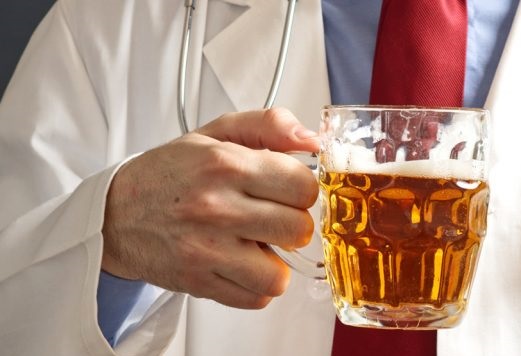Kidney stones are more common than you might think. You are lucky if you do not have the issue. Anyone who has it will confirm how painful the whole thing can be. Statistics show that over 300,000 Americans go to the emergency room for kidney stones in one year. Men are at a higher risk of developing kidney stones, and the risk factors include overactive parathyroid glands, kidney disease, gout, and a genetic predisposition to kidney stones. Researchers have also found a link between alcohol and kidney stones. You may want to limit the intake of alcohol to lower your risk of developing this painful condition.


How Does Alcohol Affect Your Kidneys?
Ideally, you should be drinking no less than eight cups of fluids every day to prevent kidney stones. The idea is to keep your body hydrated and make your urine less concentrated. Since alcohol is a diuretic, it can lead to dehydration and increase your risk of developing kidney stones. Here is more about the connection between alcohol and kidney stones:
1. Alcohol Contains Purines
If you are dealing with gout, you may already know the importance of limiting the intake of food that contains purines. Your body converts these substances to uric acid, which can cause uric acid crystals to develop in your joints. Moreover, your body excretes uric acid in the urine, but too much of it would put strain on your kidneys and lead to the development of uric acid kidney stones.
2. Alcohol Leads to Weight Gain
Alcohol provides you with empty calories that can lead to weight gain. People who are obese are at a greater risk of developing kidney stones. That is mainly due to the hormonal and metabolic changes taking place in obese people. It is presumed that obese people do not pay attention to their diet, which is another reason why they may develop kidney stones.
3. Alcohol Disrupts the Acid-Base Balance
Another link between alcohol and kidney stones is that excess consumption of alcohol can disrupt your body's acid-base balance and that in turn increases your risk of developing kidney stones. Any disruption in the acid-base balance would result in decreased sodium excretion and you will have difficulty producing urine, both of which can increase your risk of having kidney stones.
What Else Increases Your Risk of Kidney Stones?
You may have gathered the fact that there is a direct connection between alcohol and kidney stones. It is up to you to make alcohol work in your favor by limiting the amount you drink every day. Here is a bit more about what increases your risk of developing kidney stones, irrespective of whether you are a drinker or not:
- Not drinking enough water increases your chances of stone formation in the kidneys. You are drinking enough water if your urine is light yellow in color.
- Not paying attention to your diet may lead to the development of kidney stones. This is especially true if you are on a diet high in sodium, protein, and oxalate-rich foods, such as dark green veggies. If you have too much sodium in your diet, your kidneys will have to work harder to filter the amount of calcium in your body, and this will make you deal with kidney stones at some stage.
- Not doing anything to keep your weight in check is also a risk factor. Obese people can develop insulin resistance and may have increased calcium in the urine. This can result in a higher risk for kidney stones. Researchers have found a direct link between kidney stones and high BMY, weight gain, and large waist size.
- Certain medicines can increase your risk of developing painful kidney stones. Some common examples are indinavir and acetazolamide.
- You may develop stones in your kidneys if you have someone in your family already struggling with the same issue. Research shows that this problem may run in families. Moreover, if you have already received treatment for a kidney stone in the past, you are at an increased risk of developing another one in the future.
- Your risk for kidney stones increases when you have undergone digestive surgery recently. Inflammatory bowel disease, gastric bypass surgery, and chronic diarrhea are some issues that can change the digestive process and affect the way your body absorbs water and calcium. This in turn increases the levels of certain substances in your urine that can cause stones to develop in the kidneys.
- People with existing medical conditions can develop kidney stones. Some of the most common diseases and conditions that increase your risk of kidney stones are cystinuria, renal tubular acidosis, urinary tract infections, and hyperparathyroidism.
How Do You Know If You Have Kidney Stones?
If you suspect you have kidney stones, you should seek immediate medical attention. Do not wait until your pain gets worse. You should go see your doctor immediately if you have:
- Excruciating pain that makes it difficult for you to sit in a comfortable position
- Severe pain accompanied by vomiting and nausea
- Blood in your urine
- Severe pain along with chills and fever
- Pain while urinating
